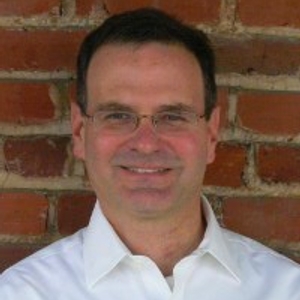If alive today, conservative saint Edmund Burke would surely be skeptical of such innovations as factory farms, nuclear power and hydrofracking.
“Don’t eat anything your grandmother wouldn’t recognize as food,” advises Michael Pollan, author of foodie blockbuster The Omnivore’s Dilemma. Who knows what hidden dangers newfangled and untested foods like margarine, energy drinks or Tofurkey might pose to our health?
Now, that’s conservative.
And I don’t mean conservative like the GOP leadership in Congress or the Koch Brothers or people who don’t like gay marriage or abortion and blame the Bible for it. I mean conservative in the old sense of wanting to preserve what existed in the past on the assumption that, just like that old time religion, if it was good enough for our mothers, it’s good enough for me.
If we follow Pollan’s advice and go back to the way our grandmothers did things, that’s even more conservative.
Used is better than new
For a real conservative, then whatever’s old gets the benefit of the doubt. Whatever’s new is guilty until proven innocent.
For my part, I think that many of the innovations of the fossil-fuel era may ultimately bring more danger than benefit, whether it’s personal cars, coal-fired electricity or the whole chemical industry. This view is making me pretty conservative.
Indeed, I’ve gotten so conservative that I can’t help from applying Pollan’s rule to nearly any story in the news:
- GMO foods? Guilty until proven safe to eat and safe to grow for today and future generations.
- Political campaign Super PACs? Guilty until proven not to corrupt our democracy.
- Hydrofracking for natural gas? Guilty until proven not to contaminate water supplies.
This approach basically turns upside down the usual American love of novelty. For the real conservative, what’s New is probably not Improved.
As Edmund Burke, one of the founders of conservatism, said: “A spirit of innovation is generally the result of a selfish temper and confined views. People will not look forward to posterity, who never look backward to their ancestors.”
If your first reaction to any kind of new whiz-bang technology is “Gee, that sounds cool!” then you’re certainly no conservative.
Smart phones? Gene therapy? Robots on the battlefield, on an assembly line or vacuuming your living room?
For the real conservative, they’re all suspect from the outset.
Thanks, but we’re all progressives here
Now, most of the people I respect and admire who are fighting climate change, re-localizing their economies and standing up for conservation and clean energy, wouldn’t want to call themselves conservative. They seem to prefer “progressive,” which sounds like the opposite of conservative.
No wonder. In the nineteenth century, conservative was a term of derision for royalists, High Churchmen, other Hapsburg-admirers and other reactionaries of the ancien regime. In Bad Old Europe, conservatives were aristocrats, archbishops and members of Parliament who resisted change on principle to preserve the last vestiges of feudalism. So in the capitalist-hustling America of the Gilded Age, if you were open-minded and cared about the future, Progressive was what you wanted to be.
But these days, is progressive really such a good way to talk about people who really just want to save what we already have or bring back what we used to have?
If you want to protect clean air and water, unadulterated food grown by family farmers and walkable towns and cities, then you’re not looking for progress. You’re looking to conserve.
It’s the guy with the robots who’s pushing progress.
Of course, there are progressives who use their own terminology. For example, environmentalists urge us to follow “the precautionary principle” or do “permaculture” or even live in an “Earthological” way.
Certainly, not even the most committed progressive could think that wonky terms like those will ever trip off the average citizen’s tongue.
But conservative is another story. It’s simple. It’s common. And it has a track record.
Everybody knows how the term “liberal” used to refer to free-market types who pushed to open up undeveloped countries to big global corporations, still the term’s meaning in Latin America.
For me, applying Pollan’s advice about following the example of our grandmothers to whatever I see, I can’t help being conservative. But with a twist. I’ve developed a new respect for the past while remaining open to necessary innovations.
Abolishing slavery, votes for women, public education for all — necessary innovations.
Computerized single-serve coffee makers — maybe not.
– Erik Curren, Transition Voice







